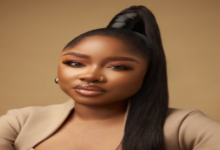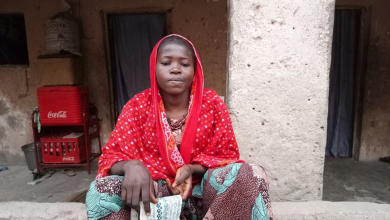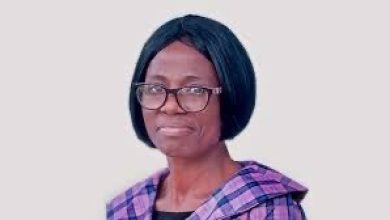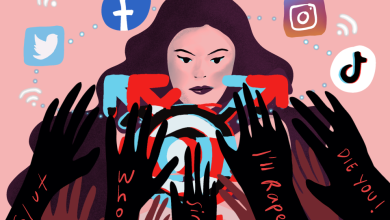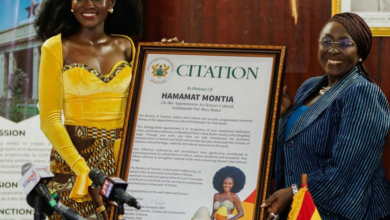Persons with albinism dying of skin cancer due to inadequate healthcare access, funds
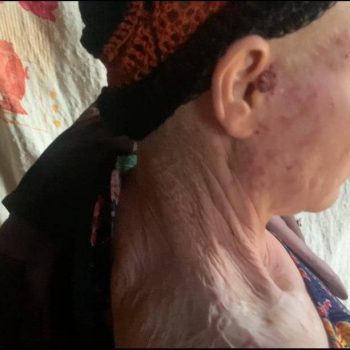
|
Getting your Trinity Audio player ready...
|
The Gabriels are seven (7) siblings with albinism from Ankpa Local Government in Kogi State. They are orphans and dejected by extended families because their mother birthed only children with albinism.
Two of them have died of skin cancer; one of them died in November 2025, and the third one, Roseline Gabriel, is in critical condition, fighting for survival.
The four others are in a dilemma of how to care for Roseline, a 41-year-old woman, who is currently on oxygen at the National Hospital in Abuja, or rather patiently wait till she passes on.
Unlike the Gabriels, Damilola Ibigbami, a 34-year-old woman based in Osun State, Nigeria, seems to have been lucky with cases of skin cancer. Ibigbami has survived about 12 surgeries, nine nose reconstructions, and three operations in her skull.
It, however, seems she might not be able to push her luck too far as she is in dire need of another surgery due to dehiscence (a condition where a surgical wound reopens partially or completely), requiring urgent intervention and follow-up care.
Skin cancer, though often overlooked, has become a growing health issue among persons with albinism (PWAs) in Nigeria. Due to the country’s tropical climate, which brings intense sunlight, PWAs are at heightened risk.
Albinism, a genetic condition characterised by a lack of melanin, leaves PWAs with minimal protection from harmful ultraviolet (UV) rays, leading to a higher likelihood of developing skin cancer. Research has shown that PWAs accounted for 67% of patients managed for primary skin cancers, with 61% of the patients below 40 years.
Despite the significant risk, awareness of skin cancer remains low, and access to preventive care is often inadequate. Many PWAs are unaware of the dangers posed by prolonged sun exposure, and the lack of regular skin checks further compounds the issue.
Prevalence of Skin Cancer among PWAs
Reports show that three to five persons with Albinism die of skin cancer every half of the year, and only two per cent of PWAs live to age 40.
In an exclusive interview with Ms Bisi Bamishe, the National President of the Albinism Association of Nigeria (AAN), it was disclosed that the prevalence of skin cancer among PWAs is quite high, leading to the death of at least two PWAs in Nigeria every month.
Ms Bamishe noted that there are higher figures in some cases, as some are underreported. She explained that many PWAs are affected with skin cancer because of high exposure to the sun at a younger age, which later manifests as skin cancer when they become adults.
She said, “Skin cancer is prevalent among us because of lack of information. When we were growing up, the exposure was not there, and most of us stayed in the sun. There wasn’t knowledge that there was sunscreen to wear to protect our skin.
“They don’t come out immediately when the symptoms of cancer start, either because they are not aware it is skin cancer or they are just unsure what to do. They report these cases when it is too late, often when they reach stage 3 and little or nothing can be done at that critical stage.”
Corroborating her, Mr Tolani Ojuri, the Chairperson of the AAN, Lagos State Chapter, in an interview with BONews, shared that before 2023 and up to the last quarter of 2022,
“We had an average of one death monthly caused by skin cancer in Lagos. Nationwide, we have an average of two to three people who die of skin cancer monthly.”
Far Too Many to Ignore
In 2010, Margaret Obisanya observed a lump in her right ear. She initially thought it was acne, but when it started bringing out a pulse, she felt it was a boil and would only add sheer butter. She hoped it would disappear quickly, as it is with boils generally.
It didn’t disappear; the lumps began appearing on her shoulder, then moved to her back and cheek. The lumps started ‘melting,’ and the family thought it was a spiritual attack. They put a lot of effort into averting the spiritual attack. Little did they know that it was skin cancer.
Margaret lost her life in July 2012, and the family wished they had been better informed to have sought adequate care and saved her. 12 years later, Margaret’s immediate sister, who is also a PWA, has fought more than six cases of skin cancer, which were detected early.
“It will start like a blister, and people often ignore it because acne and blisters are normal to people. After some time, the blister becomes reddish and painful, and if care is not taken, it would degenerate into cancer and might lead to eventual death. At least, that was the case with my sister,” Victoria Obisanya told BONews.
Obisanya shared that she has had a lot of symptoms in recent times but would always treat it immediately.
“I had one between my eyes and nose recently. I had to treat it immediately after I observed it. If quickly detected, it can be treated,” she added.
Similarly, in 2013, Ms Wumi Alabi, who was in her late thirties, discovered a sore on her neck. She thought it was a sore from an insect bite and didn’t worry even when it brought out her pores.
“I didn’t bother about treating it at first as it wasn’t affecting me. But after some time, it became painful, and the pores were coming out consistently. It was at this point that I started seeking medical help,” she told BONews.
It took her six years before she accessed treatment care, and a successful surgery was done, including a skin graft where tissue was extracted from her thigh to cover her neck.
The Burden of Care
The financial burden of skin cancer treatment in Nigeria is immense, with surgeries, chemotherapy, and radiotherapy often costing more than the average person can afford. In Damilola Ibigami’s case, multiple surgeries and ongoing care have pushed her and her family into a continuous cycle of medical debt.
Damilola Ibigbami, a native of Ekiti State, has been battling skin cancer since 2016. Her journey began when what appeared to be a simple acne on her nose turned out to be skin cancer, leading her down a long and painful path of treatments, surgeries, and recoveries.
“It started like a pimple on my nose,” Damilola told BONews. “I didn’t realise it was skin cancer until it threatened my life. I had surgery, which was initially successful, but I entered the theatre up to 9 times to reconstruct the nose after surgery as it was falling off.
“I had to go through chemotherapy and radiotherapy at the National Hospital in Abuja. Unfortunately, the free treatment for persons with albinism had been cancelled, so I had to cover the expenses myself, which was a tall order.”
After completing treatment in Abuja, Damilola continued post-treatment care at the Federal Medical Center in Owo, from where she was referred to Abuja and also in Ilorin, but the nightmare wasn’t over. In 2019, three years after her initial treatment, the skin cancer reoccurred, this time on her head. The cancer had spread so deeply that it affected her skull. The surgery to remove it in 2022 involved replacing part of her skull with mesh.
“I ran from one place to another,” Damilola said, describing the desperate search for financial support to access treatment. The surgery was successful, but in 2024, complications arose. The mesh that had been placed to cover her skull opened up, and she was told it needed to be replaced, a procedure costing over 2 million Naira, which she has not been able to raise.
Roseline Gabriel needed to pay N200,000 per session for up to eight sessions of chemotherapy and N900,000 for one session of radiotherapy. When her siblings could not raise the funds, she was taken out of the hospital after the first session of chemotherapy, which they paid for after receiving support from the FCT—Abuja chapter of the AAN.
Roseline’s primary carer and younger sister, Priscilla Gabriel, said, “We had no one to support us. We are orphans, and our extended families have not been able to offer any help. I had to take my sister home when we couldn’t afford to pay for the chemotherapy, and the other hospital bills were piling up.”
Photo: Roseline Gabriel, after the first chemotherapy, was at home and being taken care of by her sister, Priscilla. They left the hospital because they could not fund the bills.
Roseline has been returned to the hospital as her case gets worse. There is still no hope of raising the funds for her treatment.
“The doctors have asked us to do a brain test as the cancer might have affected her brain. We don’t know where else to turn to,” Priscilla explained to BONews.
Beyond the financial burden of care, PWAs with skin cancer suffer emotional burdens as family and friends abandon some.
Access to treatment for Skin cancer
For those diagnosed with skin cancer, treatment is not just a long and expensive process. The lack of comprehensive healthcare coverage in Nigeria exacerbates it. Late diagnosis also compounds the issue, making it quite challenging for PWAs with skin cancer to access quality care.
When she first had skin cancer, Ibigbami was not sure about how to access treatment. She moved from Lagos to Ondo to Abuja to Kwara, seeking different phases of treatment for her condition.
“The first thing that happened was that I had to leave Lagos, as nothing I did was helpful, to meet my parents in Ondo. From there, we went to the Federal Medical Center in Owo before I was referred to Abuja for surgery and Ilorin for post-surgery care.
“All of these referrals and constant hospital visits came with a lot of emotional and financial stress, but the quest for survival didn’t allow me to give up,” she narrated.
For Wumi Alabi, constant visits to chemists, pharmacists, auxiliary nurses and private hospitals were her reality for six years, and she never ceased purchasing drugs and taking injections, with the assurance that the ‘sore’ would disappear.
“It was at the Wesley Guild Hospital hospital in Ilesa, Osun State, that I was diagnosed with skin cancer, something that I had batted with for over six years, and they referred me to Obafemi Awolowo Teaching Hospital, Ile-Ife,” Alabi mentioned.
According to her, luck shone on her, and she got in touch with TAF Africa from OAU. Through this, she got a letter to visit the National Hospital in Abuja, where she had free surgery on October 7, 2019.
Inadequate access to treatment services and, most importantly, the funding resources are largely responsible for the death of many PWAs with skin cancer.
Meanwhile, PWAs enjoyed free skin cancer treatment at the National Hospital in Abuja. But this initiative was halted during the President Muhammadu Buhari administration, which many rights groups have appealed to be reinstated.
Lagos Government trailing the blaze
To address the burden of care and enhance access to quality treatment for PWAs with skin cancer, the Lagos State Government, through the Lagos State Office for Disability Affairs (LASODA), released funds to the Lagos State University Teaching Hospital (LASUTH) in January 2024 to provide free treatment services for PWAs with skin cancer in the state.
The Dermatology Unit of the Department of Medicine, the Plastic Surgery Unit of the Department of Surgery, and the Oncology Department are executing the free treatment. The Departments were engaged based on the severity and stage of the skin cancer among the patients presented for treatment.
Adenike Oyetunde-Lawal, the General Manager of the Lagos State Office for Disability Affairs (LASODA), spoke with BONews and explained that the skin cancer treatment programme for PWAs in Lagos was borne out of the desire to provide adequate care to PWAs fighting cancer in the state.
She explained that the Lagos State Governor, Mr Babajide Sanwo-Olu, commissioned the agency to procure preventive care, such as UV umbrellas, hats, and sunscreens, which were distributed to both children and adults, as well as a medically administered ointment called efudix.
Most importantly, the “fund was released, and it is domiciled in the Dermatology Unit in LASUTH so that the albinism association in the state can present members with skin cancer for treatment.”
Remarking that the intervention has been largely successful since its inception, Oyetunde-Lawal said, “We intend to continue to fund the purse at LASUTH so that the Dermatology unit can, at minimum, administer the first point of care for people.”
Dr Folakemi Cole, Consultant Physician and Dermatologist at the Department of Medicine, Dermatology Unit in LASUTH, corroborated that the Lagos State Governor, Mr Babajide Sanwo-Olu, through LASODA approved aid money for the treatment of about nine people with skin cancer, adding that others have also benefitted from the funds.
Dr Cole shared that the beneficiaries have been able to access free surgical care, free chemotherapy and radiotherapy for skin cancer, depending on the severity of the level of their skin cancer.
Highlighting the demography of beneficiaries, Dr Cole emphasised that the patients are indigents and “they would not have been able to afford this care if not for the intervention of the Lagos State Government on their behalf.”
Speaking to BONews about the impact of the intervention, Ojuri remarked that “we have moved on” and added that “those who have gone through surgery and radiotherapy have gone back to their normal lives. Over 50% of them have fully recovered, and another 50% are in various stages of intervention.”
He expressed his appreciation to the Lagos State Government for its support, which, according to him, has helped to save the lives of PWAs in the state.
One of the beneficiaries of the intervention, Edema Fredrick Taiwo, a private school teacher who was helpless after several visits to his doctor, was referred to see a specialist before he was diagnosed with skin cancer in 2023.
By June 2024, he had free surgery done in LASUTH, and he is back to normal.
“The pain was much, and it was a horrible experience for me and my immediate family. There was no way I could have afforded to go for surgery because I earned a meagre income as a teacher. This is why I am grateful to the Lagos State Government for this intervention,” Edema told BONews.
However, people like Damilola Ibigbami and Roseline Gabriel, who reside outside Lagos State and are in dire need of medical intervention, wish they had even the slightest opportunity to access free treatment provided by the state government and get another chance at life.
Preventing Skin Cancer among PWAs
The major cause of skin cancer among PWAs is too much exposure to the sun, and to prevent this, Dr Folakemi Cole advised that preventing skin cancer among PWAs needs to start once a child with albinism is born.
“Once the child is born and is identified as having albinism, the mother should be referred to the dermatologist or the paediatric dermatologist for counselling on how best to care for that child. The major thing they need to know is that a child with albinism should not be exposed to the sun,” Dr Cole said.
She explained in detail that preventing skin cancer includes wearing “sun protective clothing, use of umbrellas when going out during the day, sunglasses, sun hats, and of course, sunscreen creams, which will be applied to the parts of the body that are exposed like the face, the hands and the legs.”
Dr Cole also recommended that PWAs go for regular skin checks with dermatologists so that any suspected skin cancer can be easily detected.
“If PWAs have any skin condition at all, they shouldn’t wait up to two to three weeks to see their dermatologist to have it evaluated. Like with most cancers, early detection is always key. So people with albinism need to see their dermatologist early so that if they have any cancer or pre-malignant skin condition, it can be treated on time,” she added.
Similarly, Tolani Ojuri shared that the association, through the support of the Lagos State Government, is leading media awareness campaigns to sensitise the public, particularly those in urban-poor neighbourhoods, on how to prevent skin cancer.
Ojuri also added that “PWAs need to check their skin at least once every three months. If there is anything on their skin for up to one week, go to the clinic to check.”
To ensure the preventive measure reaches a wide audience, Ojuri said the association is seeking support from telecom operators to send push messages to PWAs and their families on how to prevent the disease.
For her part, the LASODA General Manager shared that prevention is better than ‘running around’ to cure cancer and advised parents of children with albinism to prioritise their children’s health and well-being by limiting their exposure to the sun.
Speaking about how schools can contribute to skin cancer prevention, Oyetunde-Lawal said, “It usually starts from their childhood, especially while in primary school and playing under the sun.”
She recommended that “schools also need to understand when to provide alternative uniforms that cover their body completely and also not rebuke parents who allow their children with albinism to wear long-sleeve uniforms or cover their heads in classes.”
Seeking Urgent Help
Damilola Ibigbami has been trying to raise 2 million Naira since April 2024, but she has not met her goal nine months later. Her network and circle of friends who had supported her for the first two surgeries are financially weary of assisting her yet another time.
“It is emotionally draining that I have not been able to raise the money needed for this surgery. I hope I survive this. I only wish I could get the surgery done for free like it is applicable in Lagos state, but I am not a resident of the state, and I can’t benefit from the free surgery programme for persons with albinism.
“I wish people can support me to raise the required money for this surgery so that I don’t have to die as a result of this skin cancer which can be treated,” Ibigbami appealed.
Sharing her hope for survival, Ibigbami said. “I have survived two major surgeries and nine nose reconstructions. I believe I can survive this. I hope the help I need doesn’t arrive too late.”
Priscilla Gabriel, on behalf of her sister, also called for help from Nigerians so that Roseline could access the support and care she needs.
“Losing two of my siblings to the same ailment and the third one nearing death is not a palatable situation to be in. Doctors have told us that she can survive this, but without the funds, there is nothing anyone can do to help her,” she said.
Ms Bamishe, while expressing her displeasure about the lives that have been lost due to the inability to raise funds for surgery, told BONews that “it’s very difficult for our members to get financial help because of the high cost of skin cancer care. We believe that the only way to get help is through the Federal Government and State Governments.”
Ms Bamishe appealed for the reinstatement of free skin cancer treatment for PWAs at the National Hospital, Abuja, and in teaching hospitals across Nigeria’s six geopolitical zones.
“A lot of PWAs benefitted from the free treatment programme at the National Hospital. Now, a lot of people are more susceptible to skin cancer because of climate change and long exposure to the sun. It is important that the skin cancer treatment programme for PWAs is reinstated at the National Hospital and also established in teaching hospitals across the six geo-political zones in the country,” Bamishe added.
She also appealed for the inclusion of skin cancer in the National Health Insurance scheme coverage to enable access to quality care by PWAs with skin cancer.
“Cancer treatment is covered under the insurance scheme but not skin cancer. When our members with skin cancer who are covered under the insurance go to the hospitals to access care, they are told that skin cancer is not covered.”
Ms Bamishe, expressing her frustration, said, “If we can’t get free treatment at the national hospital, give us skin cancer care in the insurance scheme.”
As part of key government actions, Victoria Obisanya called for increased awareness of preventive measures so that PWAs are better informed, do not expose themselves to the sun, and reduce their chances of being affected by skin cancer.
Obisanya, who thinks other disability clusters benefit from government interventions than PWAs, appealed for the distribution of aid materials and palliatives for PWAs, stressing that 400mg of Edudix, an early detective cancer treatment cream, costs over N100,000.
However, she emphasised that the palliatives should not just be food items, as is usually the case. Still, it should include sunscreen cream, a UVB umbrella, a brimmed hat, protective long sunscreen hand gloves, sun-protective cover clothing, and specific cream and soap that can be used to maintain healthy skin among PWAs.
Obisanya also called for empowerment for PWAs, noting that “if we are economically empowered, we won’t be engaged in work that will expose us to the sun, and there will be reduced cases of skin cancer.”
Beyond the Government
As an association responsible for promoting the rights and well-being of persons with albinism in Nigeria, AAN, under the leadership of Ms Bisi Bamishe, has itemised strategic actions to address the surge of skin cancer among PWAs.
Bamishe told BONews that the association wants to invest heavily in awareness creation as it would help reduce skin cancer cases among PWAs.
She shared that AAN is seeking collaboration with the National Orientation Agency (NOA) to disseminate key messages to increase awareness about the preventive measures.
She also called on the House Committee on Disability, the National Commission for Persons with Disabilities (NCPWD) and relevant stakeholders to prioritise support for PWAs nationwide.
“We also want to establish a cancer fund so that anyone who needs money to access care can rely on the fund, and with that, we can reduce the needless death of our members who wait endlessly trying to mobilise or secure resources to get the surgery done, and in some cases, lose their lives,” the AAN President explained.
This reporting was completed with the support of the Centre for Journalism Innovation and Development.
